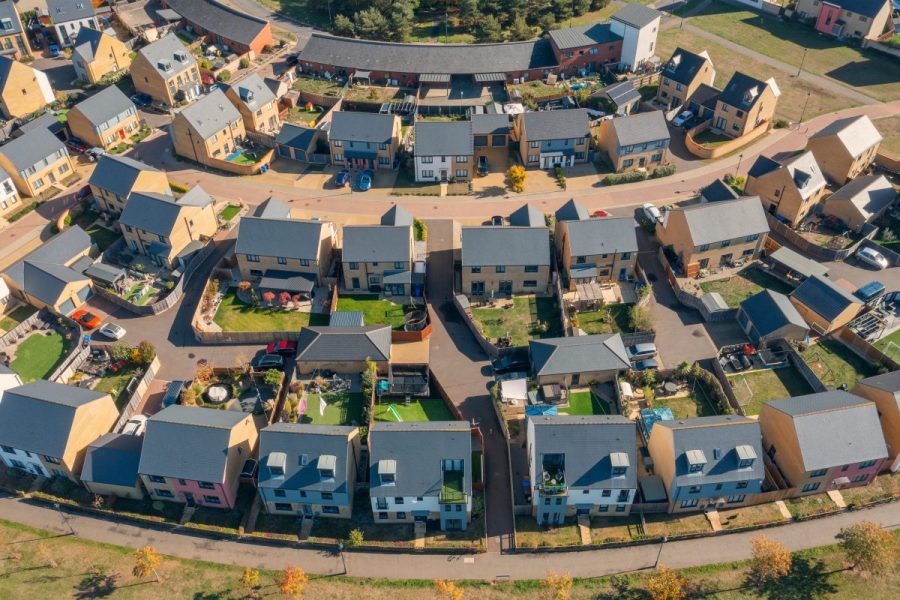
(NerdWallet) – You feel demoralized about the housing market, right? Hold on. After a grim 2022 and 2023, it looks like 2024 is shaping up to be less hostile to home buyers.
Here’s a summary of what’s been rotten in the state of housing: Home prices skyrocketed from the middle of 2020 to mid-2022. Then, mortgage rates took off, and the 30-year fixed-rate home loan crested at almost 8% in October 2023. Home buyers struggled with affordability as high interest rates eroded their borrowing power. They had few homes to choose from, anyway.
Meanwhile, rising rents made it harder to save up a down payment — or simply to find an affordable place to rent. The typical tenant’s annual rent went up 6% in 2022, and another 8% in 2023, after rising less than 4% each year in the previous 14 years.
It’s been a rough few years. But 2024 might see improvement in mortgage rates, home prices, and availability of both new and used homes for sale. Buying a home won’t be easy in 2024, but it might be less frustrating than in 2022 and 2023.
Mortgage rates should keep falling
The most important development involves mortgage rates. They have improved since autumn. In January, the average rate on the 30-year fixed-rate mortgage was 6.64% in Freddie Mac’s weekly survey. That was down from October’s average of 7.62%.
That drop of nearly one percentage point makes a big difference in affordability: It would cut $198 off the monthly payment on a $300,000 loan.
If inflation finally cools off, as it’s expected to, forecasters believe mortgage rates will fall further. Fannie Mae and the Mortgage Bankers Association predict the 30-year mortgage will average somewhere around 6% in the fourth quarter of 2024, down from 7.3% at the end of 2023.
Consumers feel pretty optimistic about rates, too. In Fannie Mae’s latest monthly survey of consumers, 36% of respondents said they expect mortgage rates to fall over the next 12 months. That’s the highest proportion in the National Housing Survey’s history, going back to June 2010.
Home prices are rising more slowly
Home prices, unlike mortgage rates, probably won’t fall in 2024. But they won’t go up as fast as they did from August 2020 through June 2022, when prices rose a startling 33.3% in less than two years.
The price increases have already slowed down. In December 2023, the median resale price of an existing home was $382,600, according to the National Association of Realtors. That was only 4.4% higher than the same month a year earlier.
Even though price increases have tapped the brakes, home buyers are still struggling from those two years of accelerated prices.
“Because the country is still faced with affordability challenges, it’s really hard to see any force that would push home prices dramatically higher this year,” said Mike Simonsen, president of Altos Research, a real estate analytics firm, in a mid-January YouTube commentary.
Builders sell homes at lower price points
Another factor promises to prevent prices from running away: Home builders are diligently adding to the housing stock. They completed a little over a million single-family houses in 2023 and 450,000 multi-unit dwellings (everything from duplexes to high-rise apartments).
Construction is still going strong. Going into 2024, 1.65 million housing units were being built, and builders were breaking ground on more houses and fewer apartments.
The pace of construction helps buyers who want more homes to choose from. At the end of 2022, a total of 1.42 million new and existing homes were for sale. At the end of 2023, the number was 1.45 million. Not a ton of improvement, but at least the number of homes for sale is moving in favor of home buyers.
In another positive development, home builders have shifted to lower price points, according to the U.S. Census Bureau. The change happened quickly. In December 2022, 38% of newly built single-family houses cost less than $400,000. In December 2023, that portion had grown to 47%. We’re talking single-family houses, not condos.
But will sellers show up?
When you combine these trends — falling interest rates, moderation in house prices and vigorous home construction — it’s easy for an optimist to conclude that houses will become more affordable in 2024. The question is: Will homeowners continue to limit progress by keeping their homes off the resale market?
Of homeowners with mortgages, almost half have home loans with rates of 3.5% or lower, according to data compiled by the Urban Institute, an economic policy think tank. With mortgage rates well above 6% today, these homeowners have an incentive to stay where they are instead of selling, then swapping their low mortgage rates for higher rates on their next home. This phenomenon, known as rate lock-inrestricts the supply of homes available for sale, even as demand remains strong.
“By and large, inventory is still going to be pretty low as people are kind of staying in their homes,” says Lisa Sturtevant, chief economist for Bright MLS, a real estate database in the mid-Atlantic region. “And so prices, you know, will probably still go up in most places.”
She adds: “If you’re a buyer, I think it’s still going to be a tricky market, a tight market, particularly if you’re coming in as a first-time buyer.”
Yet there’s room for hope. Yes, people want to keep their low-rate mortgages. But people outgrow their homes, or feel the urge to downsize, or need to relocate, or just plain get sick and tired of where they’re living and long for new digs.
Simonsen, in a YouTube commentary on Feb. 12, pointed to an 18% jump in home listings in the first week of February compared with the previous week. “Each week, we can see more sellers testing the market. More buyers are finding their opportunities as well,” he said. The upshot is that the inventory of unsold homes keeps building. That gives buyers more selection to choose from and should limit the rise of prices.
Get ready to rumble
If this partly sunny outlook is accurate, the topmost advice when buying a house in 2024 is to prepare for competition when you make an offer on a home. Get preapproved for a mortgage, get ready to settle for a “good enough” place instead of a dream home, and if you lose a bidding war, brush yourself off and keep looking.


